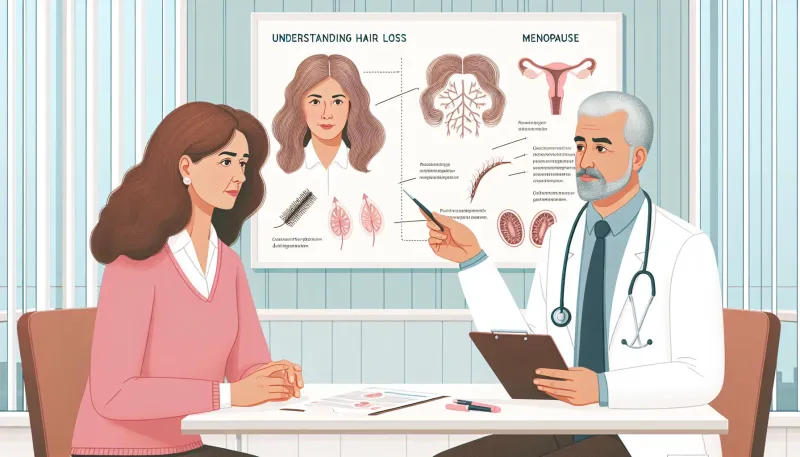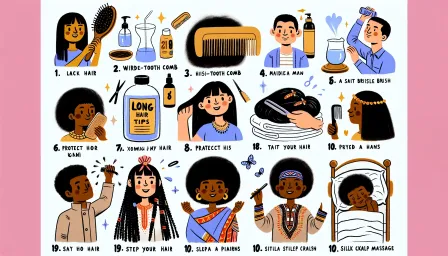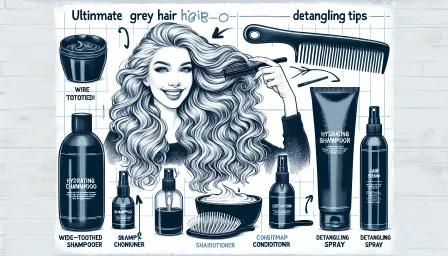Understanding Hair Loss in Menopause: Causes and Solutions

Discover the causes and solutions for hair loss in menopause. Learn about treatment options, preventive measures, and how to maintain healthy hair during this phase.
Menopause is a natural phase in a woman's life that brings about various changes, including hair loss. This article delves into the causes, preventive measures, and solutions for hair loss in menopause, offering valuable insights and guidance for women navigating this transition.
Introduction to Hair Loss in Menopause
Hair loss can be a distressing symptom of menopause, impacting a woman's self-esteem and quality of life. Menopausal hair loss generally results from hormonal fluctuations that occur during this period. Understanding the root causes and exploring effective treatments can help manage and mitigate this concern.
Causes of Hair Loss in Menopause
Hormonal Imbalance
One of the primary causes of hair loss in menopause is hormonal imbalance. During menopause, estrogen levels decline while androgen levels remain relatively stable or increase. Estrogen helps maintain healthy hair growth, so its reduction can lead to hair thinning and shedding.
Genetics
Genetics play a significant role in determining hair loss patterns. If a woman has a family history of female pattern baldness, she is more likely to experience hair loss during menopause. This genetic predisposition can make hair follicles more sensitive to hormonal changes.
Stress and Anxiety
Menopause can be a stressful time, and stress is known to contribute to hair loss. Emotional and physical stress can disrupt the hair growth cycle, leading to increased shedding. Practicing stress-management techniques can help alleviate this issue.
Nutritional Deficiency
A balanced diet is crucial for maintaining healthy hair. Menopausal women may experience deficiencies in essential nutrients such as iron, vitamin D, and biotin, which are vital for hair growth. Ensuring adequate nutrition can support hair health.
Solutions for Hair Loss in Menopause
Hormone Replacement Therapy (HRT)
Hormone Replacement Therapy (HRT) can help rebalance hormone levels, potentially reducing hair loss. However, HRT is not suitable for everyone, and it is essential to consult with a healthcare provider to discuss its benefits and risks.
Topical Treatments
Topical treatments such as minoxidil can promote hair growth and slow down hair loss. Minoxidil is a widely used over-the-counter medication that can be applied directly to the scalp to stimulate hair follicles.
Diet and Supplements
A nutrient-rich diet supports overall health, including hair health. Incorporating foods high in vitamins and minerals, such as leafy greens, nuts, and lean proteins, can strengthen hair. Additionally, supplements like biotin and iron can help combat deficiencies.
Stress Management
Managing stress through techniques such as yoga, meditation, and exercise can positively impact hair health. Reducing stress helps maintain a balanced hormonal environment conducive to hair growth.
Healthy Hair Practices
Adopting healthy hair care practices can minimize damage and promote hair growth. These practices include using gentle shampoos, avoiding heat styling, and protecting hair from environmental damage. Regular scalp massages can also stimulate blood flow to hair follicles.
Consulting a Professional
If hair loss persists or worsens, it is advisable to seek advice from a healthcare provider or a dermatologist. They can offer personalized treatment options and address any underlying medical conditions contributing to hair loss.
Preventive Measures
Regular Health Monitoring
Regular health check-ups can help detect and address potential deficiencies or hormonal imbalances early. Monitoring overall health allows for timely interventions that can prevent or reduce hair loss.
Scalp Care
Maintaining a clean and healthy scalp is crucial for optimal hair growth. Regular cleansing to remove excess oil and buildup, along with gentle exfoliation, can keep the scalp environment healthy and conducive to hair growth.
Hydration
Staying hydrated is essential for overall health, including hair health. Drinking adequate water ensures that hair follicles receive the necessary hydration to function correctly and support healthy hair growth.
Avoiding Harsh Treatments
Limiting the use of harsh chemical treatments, such as bleaching and perming, can prevent hair damage. Opting for natural and gentle hair care products helps maintain the integrity of the hair and scalp.
Conclusion
Hair loss in menopause is a common concern that many women face. By understanding the underlying causes and exploring effective solutions, women can manage this condition and maintain healthy hair. Hormonal treatments, topical applications, nutritional support, stress management, and healthy hair practices offer comprehensive approaches to combat hair loss. Consulting healthcare professionals ensures personalized care, enabling women to navigate menopause with confidence and ease.



























